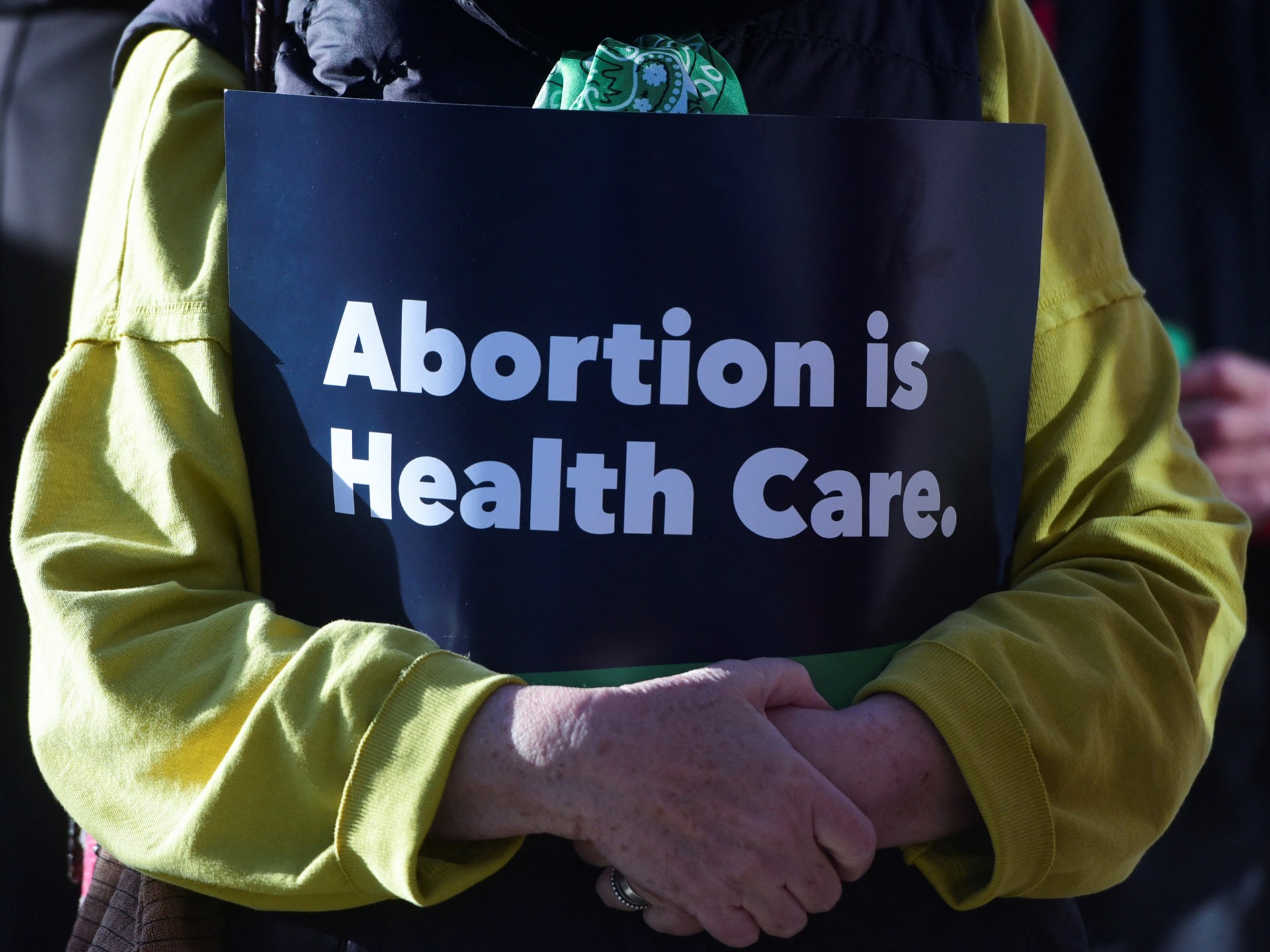It’s Ladies’s Historical past Month and the world is bursting with proclamations of assist for gender equality and ladies’s rights. However too usually, the overall narrative celebrating historic progress on gender points leaves out abortion and contraception, sidelining the truth that with out them, gender equality would have been – and nonetheless is – inconceivable.
This yr, hundreds of thousands of girls and ladies can be denied entry to abortion, compelled to hold unintended pregnancies to time period or resort to unsafe termination. Abortion continues to be unjustly restricted the world over, most lately in the US, the place new state bans are being launched with the Supreme Court docket’s resolution to rescind the authorized safety of abortion established within the Nineteen Seventies.
In the meantime, greater than 200 million individuals who need fashionable contraception nonetheless shouldn’t have entry to it – from ladies dwelling in rural communities, the place such providers usually don’t attain, to adolescents or single ladies who face taboos about utilizing such safety.
Stigma and disinformation unfold unabashedly by anti-choice teams have resulted in legal guidelines that criminalise abortion, suppression of correct sexual well being data, and a tradition of disgrace and silence round folks’s reproductive selections. Marginalised, rural and low-income communities that may’t entry non-public healthcare or journey for providers are those most affected.
In consequence, solely 57 % of girls around the globe are making their very own knowledgeable selections on intercourse and reproductive well being. How can equality be achieved after we are denied company over our personal our bodies and healthcare and when our entry to important, life-saving healthcare providers is restricted? It can’t be.
That’s the reason the shortage of assist for common entry to reproductive healthcare, together with abortion and contraception, renders the world’s efforts to additional gender equality disingenuous.
Gender equality calls for entry to contraception and secure abortion as a result of, with out it, ladies’s lives are on the road. In Addis Ababa, the place I grew up, I noticed first hand what an absence of entry to reproductive well being data and providers can do.
Somebody I knew died by suicide after changing into pregnant as a result of she didn’t know who to show to. One other woman disappeared from class someday, by no means to return; we then heard rumours that she had ingested bleach in an try to finish her being pregnant. To at the present time, I don’t know whether or not she lived or died.
The state of affairs at present will not be too totally different. Throughout Africa and Latin America, about three-quarters of abortions are unsafe; globally, nearly half of abortions are carried out by means of harmful strategies. Ladies who resort to an unsafe abortion threat devastating long-term well being issues – and their lives.
However entry to abortion and contraception goes far past fast life-saving healthcare. As MSI Reproductive Selections’ Africa Director, I assist ladies and ladies make knowledgeable selections about their our bodies and futures, and I’ve realised the ability of reproductive selection is in its ripple impact.
It’s inextricably linked to serving to ladies stay in training and ladies pursue careers; it breaks cycles of poverty and encourages ladies’s political and financial participation. All of those assist advance gender equality and assist a number of international improvement objectives.
Take training, for instance. By rising adolescent entry to those healthcare choices, hundreds of thousands extra ladies might keep in class. Sadly, with out them, so many ladies are robbed of the possibility to complete their training. Yearly in sub-Saharan Africa as much as 4 million teenage ladies drop out of faculty due to being pregnant. In Niger, solely one in 100 ladies will end secondary college. Only one extra yr of training can enhance a lady’s future earnings by as much as 20 % and we must be doing every little thing we are able to to make that occur.
Schooling brings with it alternatives for ladies’s monetary independence, one other prerequisite for gender equality. When a girl has management over their very own fertility, it could break the cycle of poverty and remodel her life, her household and the world. Ladies’s equal participation within the financial system has the potential of boosting international gross home product (GDP) by $28 trillion.
On the flipside, denying somebody an abortion can create financial hardship lasting years. Analysis has discovered that ladies within the US who had been unable to entry an abortion skilled elevated family poverty, debt and the chance of chapter and eviction.
Schooling and financial stability assist folks turn out to be leaders, create social change and train political energy – actions nonetheless disproportionately carried out by males. And for a lady, these are inextricably linked to her means to entry reproductive healthcare on her personal phrases.
I usually assume again to the ladies I went to highschool with – whose unintended pregnancies ended their lives – and I think about how issues would have turned out in another way if they’d had entry to contraception or secure abortion care. They could have carried on with their training, selected private life objectives and careers, led change inside their communities, and had kids if or when it was proper for them.
We will do higher for the following technology of girls and ladies. Whereas we proceed the essential work of progressing ladies’s rights and increasing entry to fashionable contraception to everybody who desires it, abortion should even be entrance and centre. We must always speak extra about abortion as a result of it’s regular. We have to fund and put money into abortion as a result of it’s healthcare. And we should break down limitations to abortion as a result of it’s a human proper.
It’s clear that the trail to gender equality is paved with entry to abortion and contraception.
The views expressed on this article are the writer’s personal and don’t essentially mirror Al Jazeera’s editorial stance.


